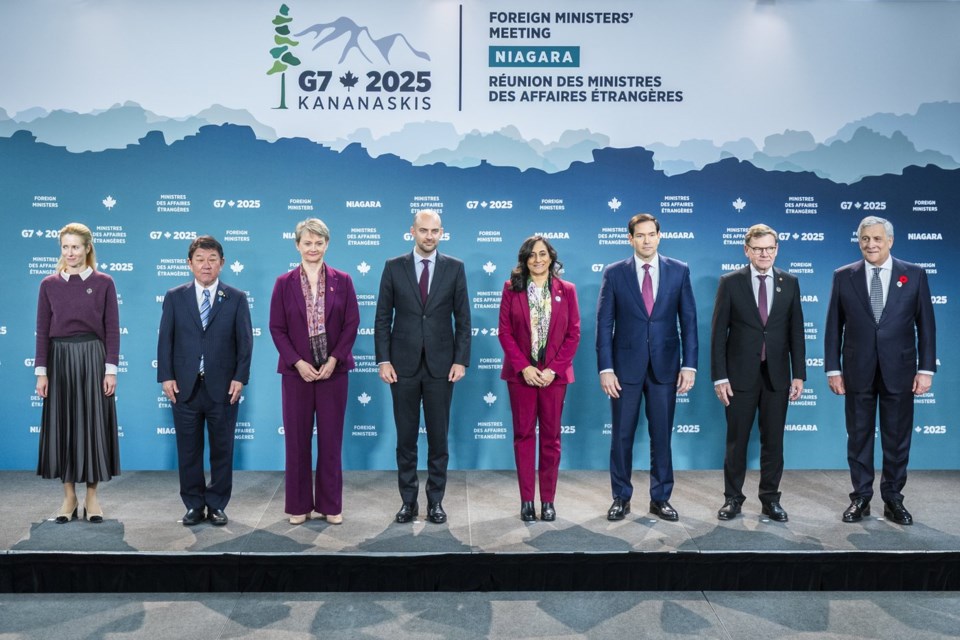Foreign Affairs Minister Anita Anand unveiled a fresh round of sanctions against Russia on Wednesday as she welcomed G7 foreign ministers to Niagara-on-the-Lake for high-stakes discussions dominated by the war in Ukraine and global security tensions.
The new sanctions, effective immediately, target individuals and entities involved in Russia’s drone and cyberattacks on Ukraine, as well as 100 vessels linked to Russia’s sanctions-evading “shadow fleet” and two Russian liquefied natural gas companies. In total, 13 individuals and 11 entities were added to Canada’s sanctions list, actions the government says closely align with measures taken by the United States, the European Union, and the United Kingdom.
“Canada will continue to intensify pressure through sanctions in coordination with allies and partners until Russia puts an end to its unjustified invasion of Ukraine,” Anand said in a statement.
The timing of the announcement underscored the urgency of the gathering. G7 foreign ministers met Wednesday morning with Ukrainian Foreign Minister Andrii Sybiha, shortly after Russia launched new strikes that battered Ukraine’s power grid and advanced further in the country’s south. Nearly four years into the conflict, Ukrainians are once again facing rolling blackouts as winter arrives.
U.S. Secretary of State Marco Rubio, a longtime critic of Vladimir Putin, attended the summit, though Washington’s overall stance remains clouded by President Donald Trump’s inconsistent approach to Ukraine. Trump’s participation at June’s G7 summit in Alberta ended abruptly, and disagreements from his delegation prevented leaders from issuing a joint statement on Ukraine. Still, after significant internal debate, Trump approved new sanctions on Russia’s oil sector set to take effect Nov. 21.
Anand and Rubio met on the sidelines of the summit to discuss transatlantic security, the Indo-Pacific, Haiti, and supply-chain resilience. It remains unclear whether they touched on Canada–U.S. trade relations, which were upended last month when Trump halted negotiations in retaliation for an Ontario-sponsored anti-tariff ad that quoted Ronald Reagan.
Closing out Canada’s G7 presidency, Anand is using the summit to push for renewed multilateral cooperation, build alternative trade ties in the face of U.S. protectionism, and deepen partnerships on critical minerals and energy security. Canada also expanded the dialogue by inviting Australia, Brazil, India, Mexico, Saudi Arabia, South Africa, and South Korea to participate in the two-day meeting.
As tensions rise over Russia’s escalating military aggression and Trump’s tariff-driven disruption of longstanding alliances, the Niagara gathering has become a test of the G7’s ability to maintain unity on global threats — and a platform for Canada to assert its role in steering that effort.

